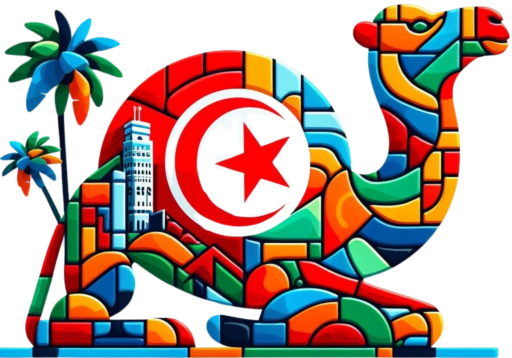- Introduction
- Summary
- Gender Discrimination and Economic Inequality
- Role of Women in the Political and Social Sphere
- Motherhood and Reproductive Rights
- Violence Against Women and Protective Measures
- Education and Employment Opportunities for Women
- Feminist Movements and Social Change
- Future Perspectives for Women in Tunisia
- FAQs
Tunisia, a country located in the heart of the Maghreb, has a complex and fascinating history marked by a rich cultural heritage and significant social changes. The condition of women in Tunisia is a highly relevant topic, as it reflects not only local challenges but also the broader dynamics of the Arab and Muslim world. After the 2011 revolution, which brought a wave of hope and change, Tunisian women gained visibility and a voice, yet they continue to face numerous difficulties related to gender discrimination and economic inequality.
Tunisian women have historically enjoyed some advanced rights compared to other nations in the region, thanks to progressive laws introduced as early as the 1950s. However, despite these advances, the daily reality for many women remains marked by gender stereotypes and a deeply rooted patriarchal culture. The struggle for gender equality is therefore a central theme in public debate, with many women mobilizing to claim their rights and promote a more equitable society.
Summary
- The status of women in Tunisia has undergone significant changes in recent decades, but major challenges remain to be addressed.
- Gender discrimination and economic inequality continue to be widespread problems that limit women’s opportunities in the country.
- Despite progress, the role of women in Tunisia’s political and social spheres remains limited, with lower representation compared to men.
- Motherhood and reproductive rights are crucial issues for Tunisian women, requiring guaranteed access to adequate healthcare services and autonomous decision-making.
- Violence against women remains widespread in Tunisia, and protection and support measures for victims are needed, along with broader cultural change.
Gender Discrimination and Economic Inequality
Gender discrimination in Tunisia manifests in various areas, including employment, education, and family life. Women face significant barriers to entering the labor market, with female unemployment rates exceeding those of men. According to the International Labour Organization, in 2022 the female unemployment rate in Tunisia was 22%, compared to 14% for men.
This disparity is often attributed to cultural and social factors that limit women’s opportunities, such as a lack of support for balancing work and family life. Additionally, women who do manage to find work often occupy precarious and poorly paid positions.
Wage inequalities are evident, with women earning on average 25% less than their male colleagues for equivalent work. This situation not only restricts economic autonomy but also has negative repercussions on the country’s overall economic development.
Role of Women in the Political and Social Sphere

The role of women in Tunisia’s political sphere has seen significant evolution in recent years. After the 2011 revolution, they actively participated in political life, contributing to the drafting of the new 2014 Constitution, which guarantees gender equality. However, despite these normative advances, female representation in political institutions remains insufficient.
In 2022, only 23% of parliamentary seats were held by women, highlighting the need for further efforts to promote female participation. Tunisian women have also played a crucial role in social movements and civil rights protests. Their presence in demonstrations has been fundamental in bringing issues such as gender-based violence and economic inequalities to light.
However, the current political context presents significant challenges, with increased polarization and growing repression of dissenting voices. In this scenario, feminist activists continue to fight for women’s rights and for greater inclusion in political decision-making.
Motherhood and Reproductive Rights
Motherhood and reproductive rights are central issues in the lives of Tunisian women. Tunisia was a pioneer in the Arab region in introducing progressive family planning and reproductive rights laws. The 1973 law made abortion legal under certain circumstances, a significant step compared to other countries in the region where such practices are heavily restricted or prohibited.
However, despite these legal achievements, many women still face obstacles in accessing reproductive health services. Cultural and social barriers can influence women’s decisions regarding motherhood and family planning. In some communities, social pressure can lead to unwanted choices concerning pregnancy and motherhood.
Moreover, access to healthcare services is often limited in rural areas, where resources are scarce and medical facilities may be inadequate. This situation highlights the need for a more integrated approach that ensures not only access to healthcare services but also education and awareness about reproductive rights.
Violence Against Women and Protective Measures
Violence is a serious problem in Tunisia, with many women experiencing physical, psychological, and economic abuse. According to a 2018 survey conducted by the Ministry of Family, Women and Youth, approximately 47% of Tunisian women have suffered violence at least once in their lifetime. This alarming figure underscores the need for more effective measures to prevent and combat gender-based violence.
In recent years, the Tunisian government has adopted legislative measures to address this issue. Law No. 58 of 2017 represents an important step in the fight against gender-based violence, introducing protective measures for victims and harsher penalties for perpetrators.
However, enforcement of these laws remains a significant challenge. Many women hesitate to report abuse due to fear of retaliation or lack of trust in the judicial system. It is essential to promote awareness campaigns that encourage victims to speak out and seek help.
Education and Employment Opportunities for Women

Education is a key factor in the empowerment of women in Tunisia. In recent decades, the country has made significant progress in raising female literacy rates and access to higher education. However, despite these successes, significant disparities persist between the sexes in both education and employment opportunities.
Girls may face family or social pressures that limit their ability to continue their studies or choose “non-traditional” fields. Employment opportunities for women are often influenced by their level of education. Female graduates tend to find better jobs compared to those with less education; however, even among graduates, unemployment remains high.
Companies often prefer to hire men or apply discriminatory criteria that disadvantage female candidates. It is essential to promote active policies that encourage the hiring of women in Tunisia’s growing economic sectors.
Feminist Movements and Social Change
Feminist movements in Tunisia have played a crucial role in promoting women’s rights and raising public awareness about gender issues. These movements have deep roots in the country’s history and gained momentum after the 2011 revolution. Activists have organized protests, awareness campaigns, and educational initiatives to address topics such as gender-based violence, workplace discrimination, and reproductive rights.
An emblematic example is the “Nissa Tounes” (Tunisian Women) movement, which mobilized thousands of women across the country to demand greater political and social representation. Through the use of social media and digital platforms, these activists have created solidarity networks that transcend geographic and cultural barriers. However, despite the progress achieved, they continue to face significant resistance from conservative segments of society.
The strength of feminist movements in Tunisia demonstrates how awareness and commitment can lead to fundamental changes, even in the face of deeply rooted cultural and structural obstacles.
Future Perspectives for Women in Tunisia
The future prospects for women in Tunisia are filled with challenges but also opportunities. Growing awareness of women’s rights and the active engagement of feminist movements can lead to significant social and political changes. However, it is crucial that the Tunisian government continues to support policies that promote gender equality and ensure the enforcement of existing laws.
Furthermore, involving men in the fight for women’s rights is essential to creating a more equitable society. Educating new generations on gender equality can help change mindsets and behaviors rooted in patriarchy. With a collective commitment from civil society, government institutions, and the international community, it is possible to build a future where women can live free from discrimination and violence, fully realizing their potential in Tunisian society.
With targeted policies and the active participation of all social actors, Tunisia can move toward a horizon of greater equity and respect for human rights.
If you are interested in learning more about Tunisian culture, I recommend reading other articles on our blog.
FAQs
How are women treated in Tunisia?
Women in Tunisia enjoy legal and social rights but can still be subject to discrimination and gender disparities in certain areas of society.
What rights do women have in Tunisia?
Women in Tunisia have the right to vote, to divorce, and to inherit. They can also participate actively in the political and social life of the country.
Is there gender inequality in Tunisia?
Yes, despite the progress made, gender inequality still exists in Tunisia, especially in rural and more conservative areas of the country.
How does the Tunisian government address women’s rights issues?
The Tunisian government has adopted laws and policies to promote gender equality and protect women’s rights. However, much work remains to ensure the effective implementation of these measures.





